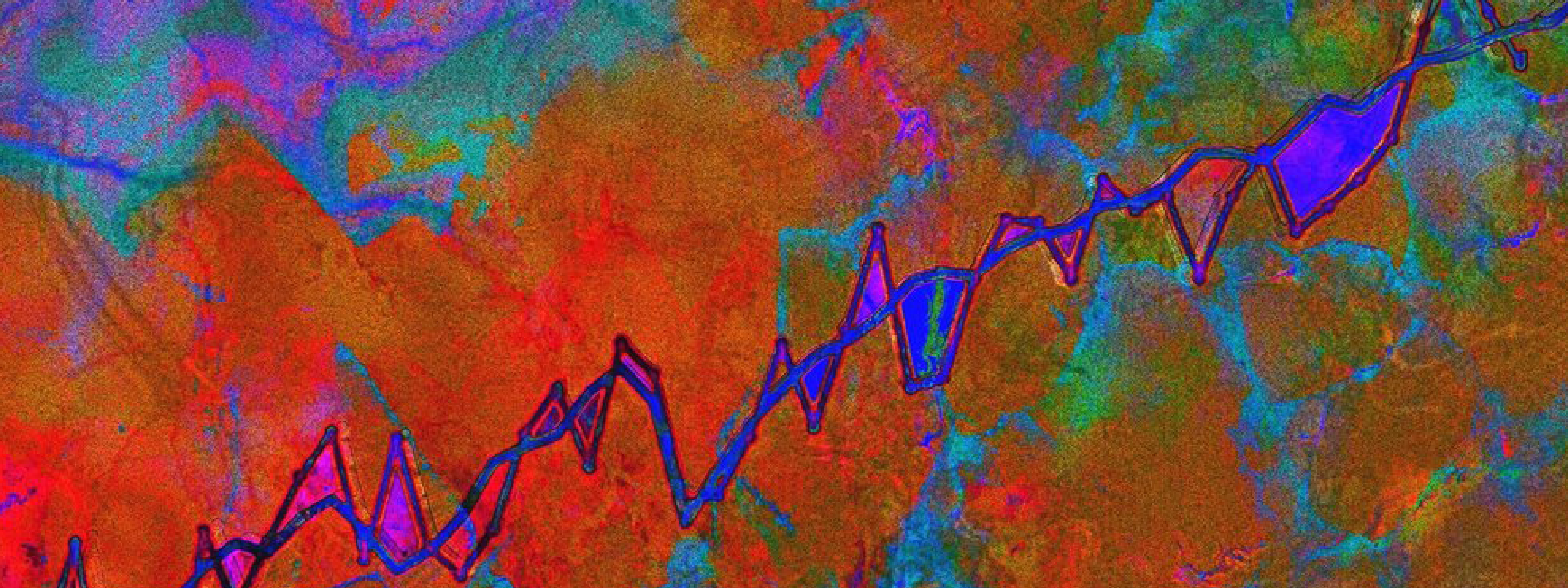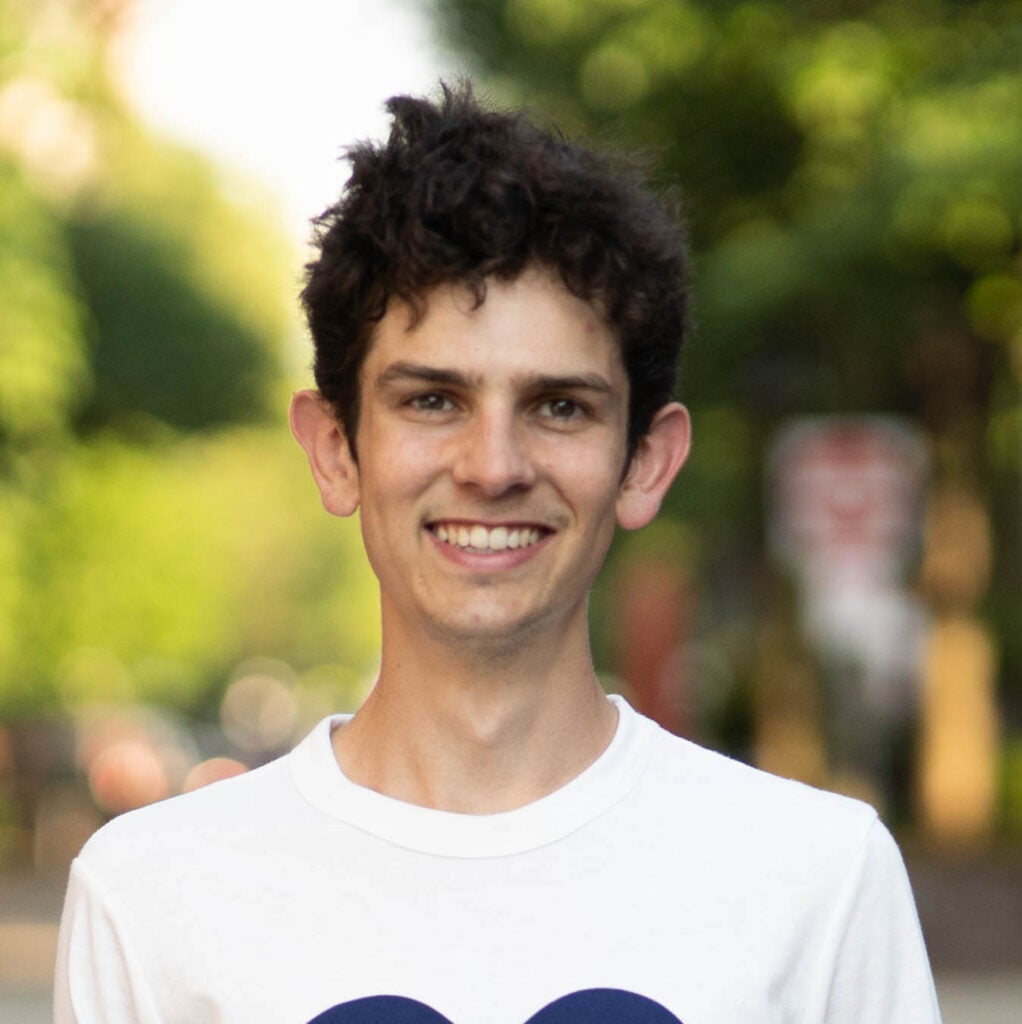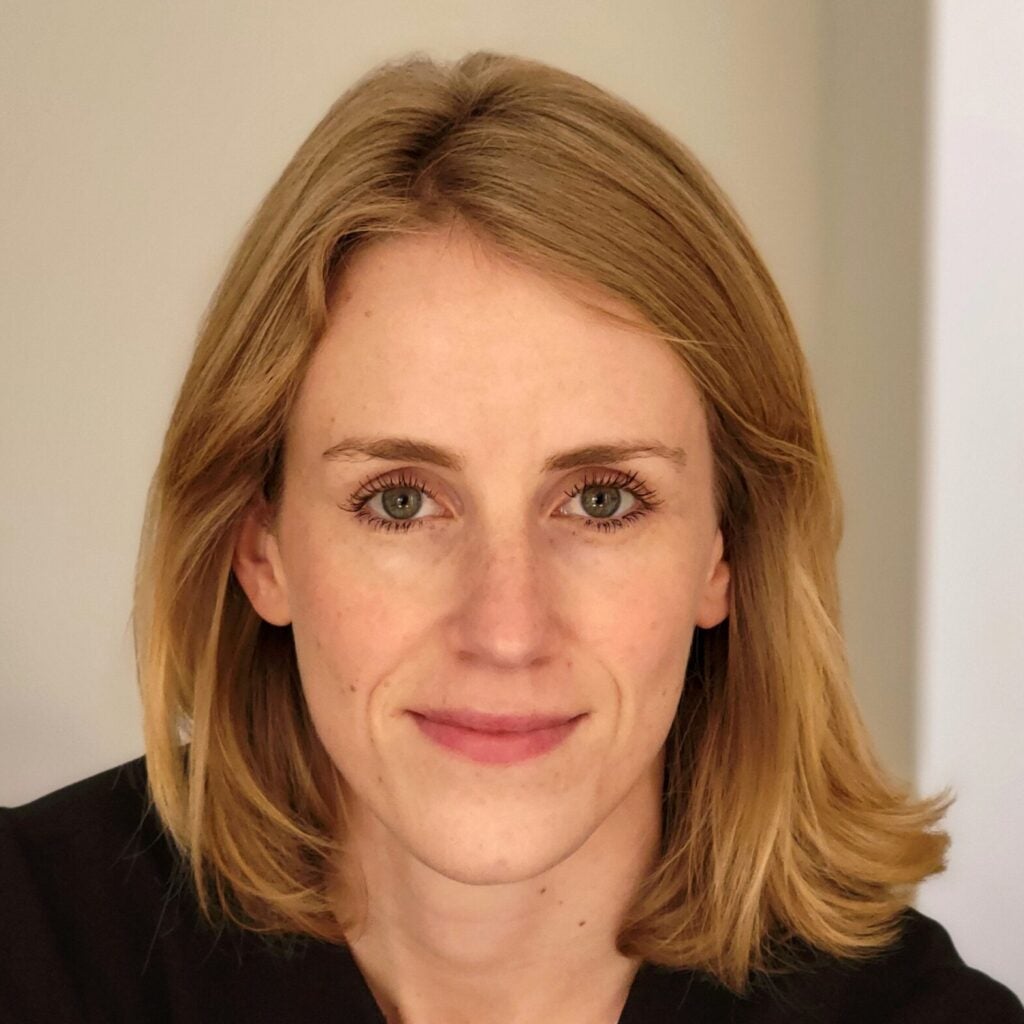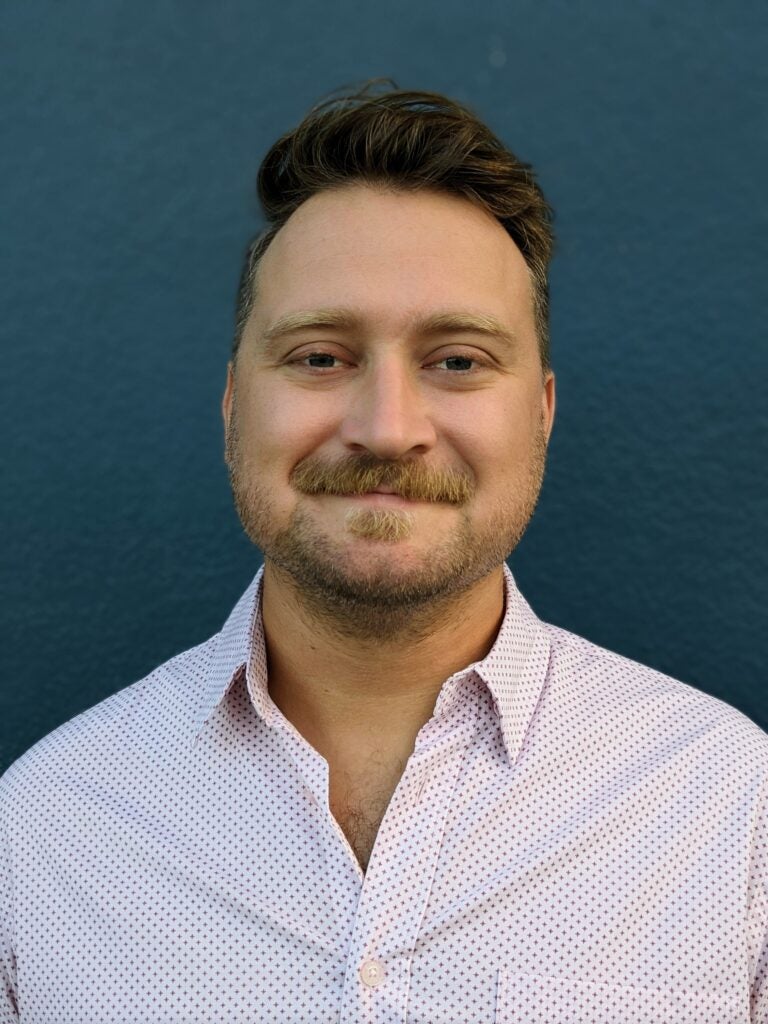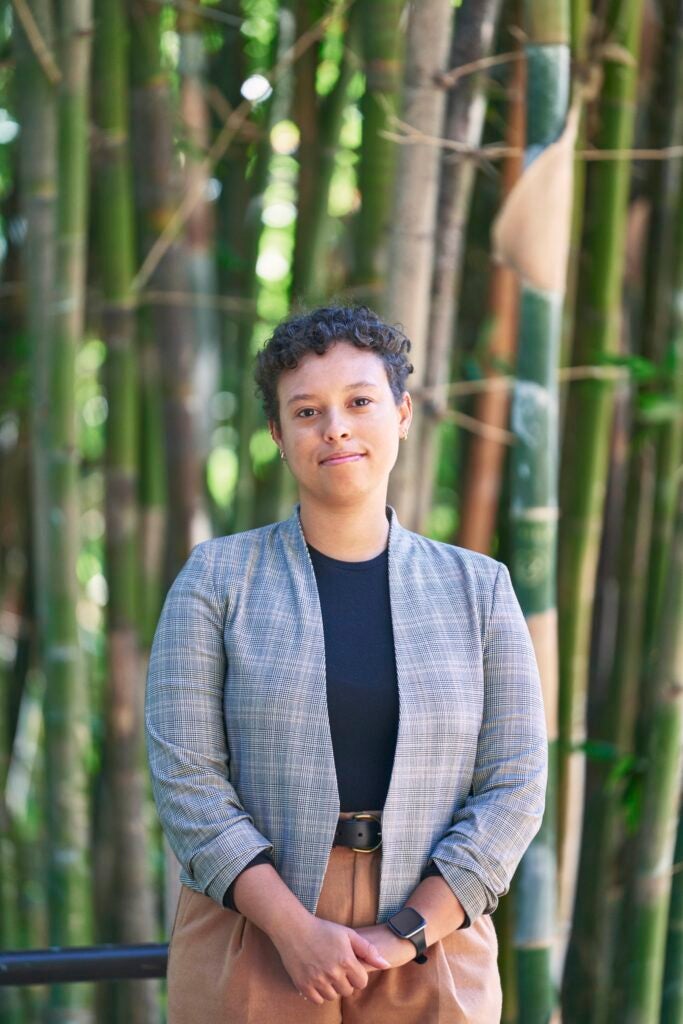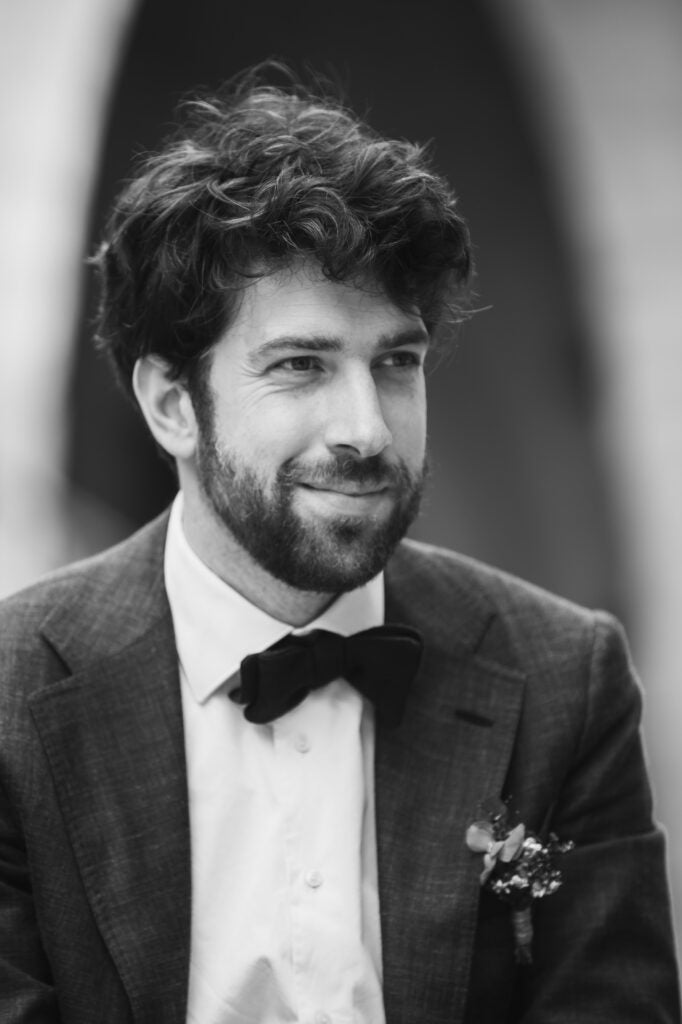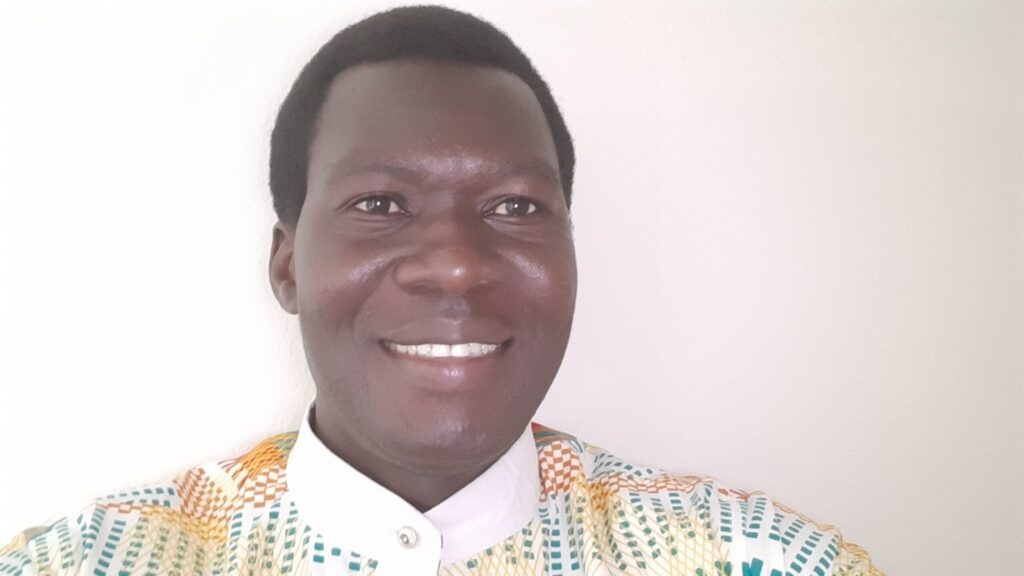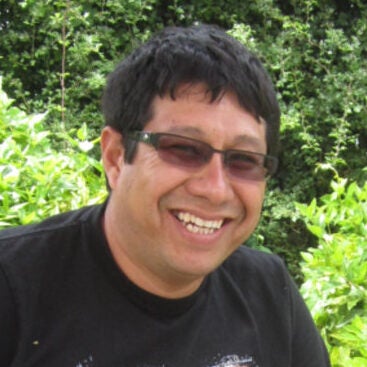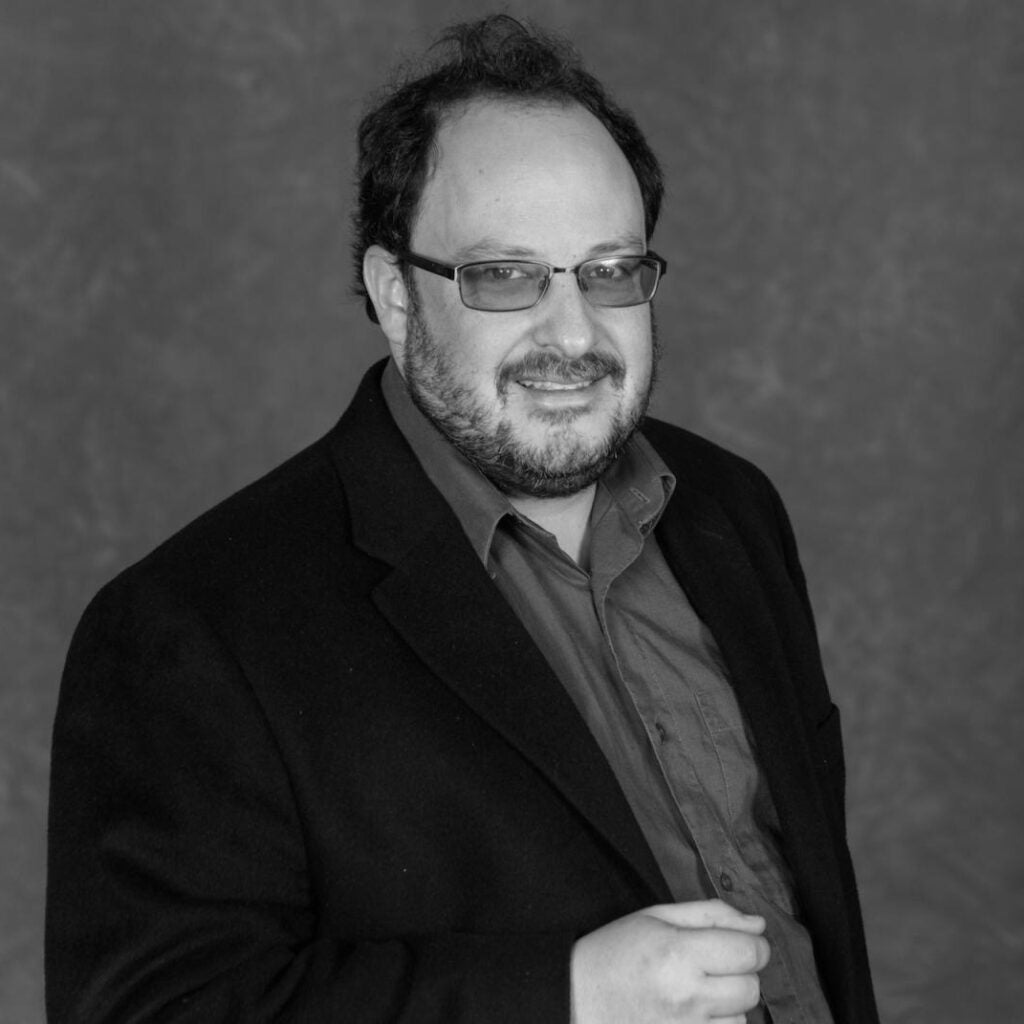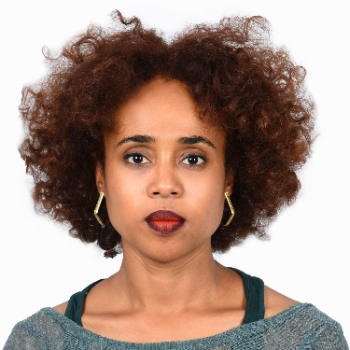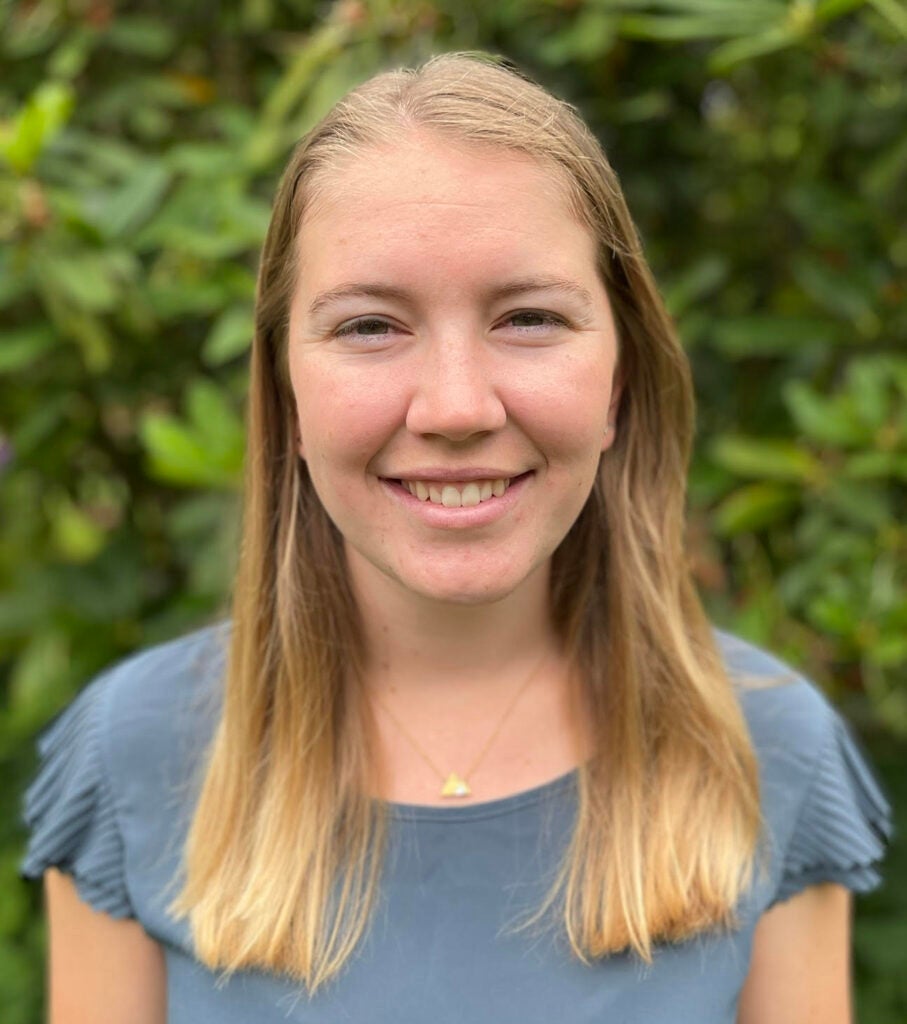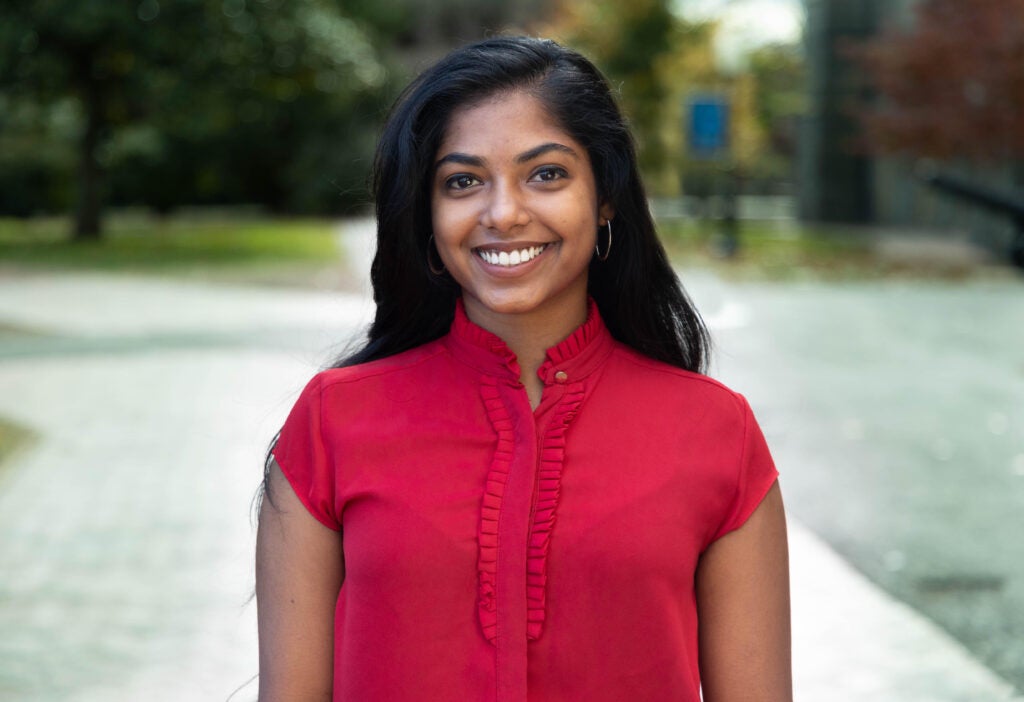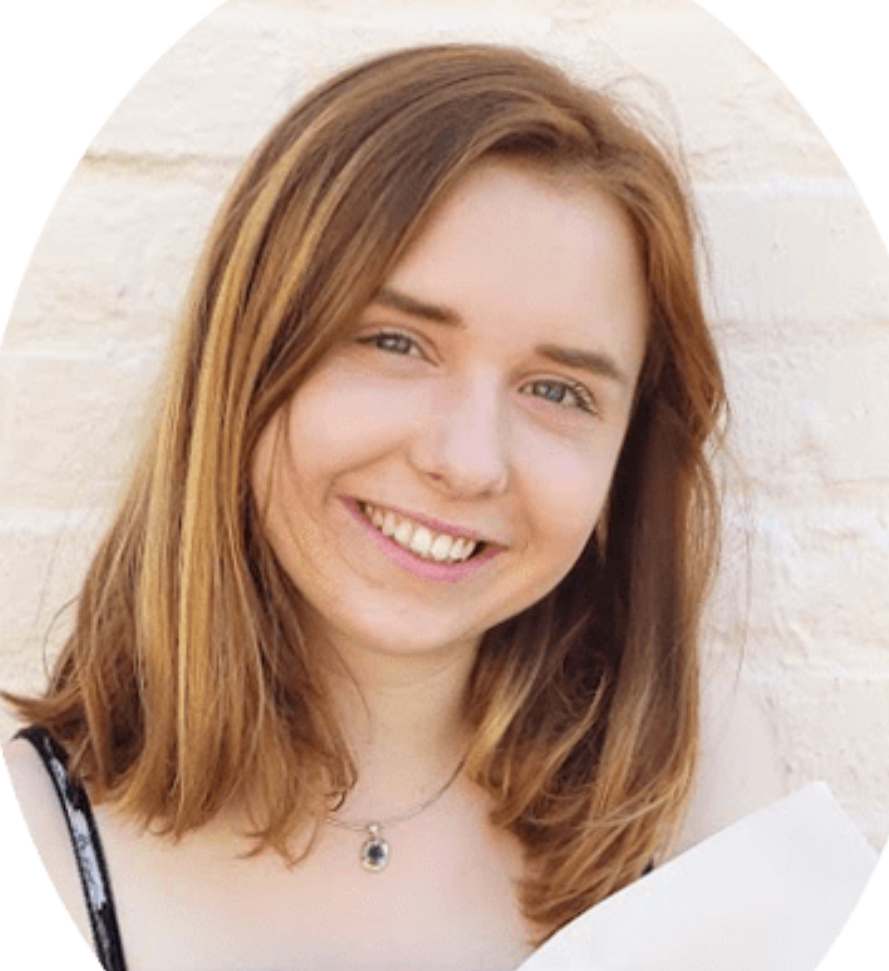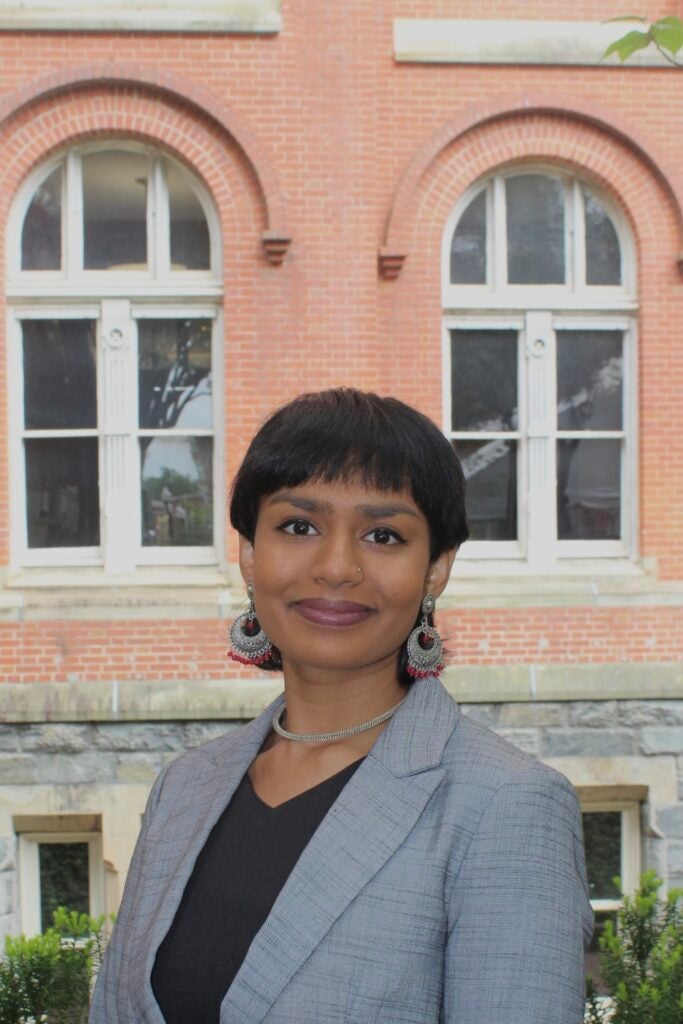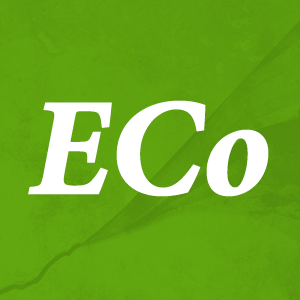ECo Fellows
Earth Commons Fellowships enable interdisciplinary research, education and action on various aspects of environment and sustainability challenges and scholarship.
Postdoctoral fellows
The Earth Commons Academic Postdoctoral Fellowship (ECo Fellows) enables interdisciplinary research on various aspects of environment and sustainability challenges and scholarship (e.g., climate and climate change, biodiversity conservation, food and water security, environmental justice). ECo Fellows also co-teach with a faculty mentor for one semester.
Applicants to the postdoctoral fellowship propose to conduct research and teach with one or more Earth Commons Faculty Affiliate Mentors. Postdoctoral Fellowships are awarded for two years, although year two is contingent upon successful progress in year one. In accepting the appointment, the fellow is expected to be in residence at Georgetown University except for absences agreed upon with mentor(s).
Stephen Bourguet
Stephen is a member of Professor Megan Lickley’s lab in The Edmund A. Walsh School of Foreign Service/the Earth Commons and is working to improve our understanding of the emissions and lifetimes of ozone-depleting substances and greenhouse gases. Stephen completed his PhD at Harvard University’s Department of Earth and Planetary Sciences where he studied climate feedbacks and atmospheric transport (think: how will changes to atmospheric water vapor and ozone further impact global warming?). Previously, he studied environmental engineering at Brown University where he researched new filtration technologies for toxic chemicals in drinking water. Outside of his work, he is an avid runner, dog dad, and breakfast lover.
Silvia Danielak
This postdoctoral research project traces the rise of environmental peacebuilding and sustainability practices in the context of United Nations peace operations. Building on Danielak’s dissertation research—which looked at the ideas and practice of realizing peace through ‘public works’ infrastructure projects—she will examine communities’ response to specific infrastructure projects pursued by the UN. Specifically, Danielak will conduct additional research with municipal authorities and communities in Bamako (Mali), Nicosia (Cyprus), and Baidoa (Somalia) to understand how local communities engage with, and eventually operationalize, environmental peacebuilding. This fellowship will contribute a planning perspective to current debates on environmental challenges while also centering peace and conflict studies in her teaching and research at Georgetown.
Tom Iwanicki
Dr. Iwanicki is a postdoctoral fellow and sensory ecologist studying the neustonic zone, the crucial and often overlooked layer of the ocean’s surface. His research not only unravels the mysteries of this unique habitat, but also sheds light on the impact of human activities, such as plastic and light pollution, to marine ecosystems. Using underwater photography and spectral measurements, Dr. Iwanicki characterizes light conditions and catalogs the diversity of animal coloration within this habitat. He models how and what animals see, particularly key and threatened species like sea turtles and seabirds, to better understand marine ecology and human impacts. By understanding the light environment and visual ecology at the ocean’s surface, Dr. Iwanicki seeks to emphasize the neustonic region as a unique habitat that requires distinct conservation policies. His work will support the development of effective regulations to mitigate the impacts of plastic pollution and light pollution, safeguarding the delicate balance of our oceans and biodiversity.
Elizabeth Karan
Liz received her BA in Organismic and Evolutionary Biology from Harvard University. During her time as an undergraduate, she worked as a research assistant in the field doing reef surveys through Operation Wallcea. She also worked as a research assistant in biophysics through the Radcliffe Research Partnership under Dr. PUPA Gilbert. She wrote her senior thesis comparing properties of fish scales while working with Dr. George Lauder and Dr. Dylan Wainwright. Liz then went on to do her PhD in Ecology and Evolutionary Biology at UCLA, working with Dr. Michael Alfaro. Her PhD research focused on the macroevolution of colors and color patterns across fishes, and she developed computational tools for aggregating phenotypic data from large image datasets. During her PhD, Liz also did education-focused work through UCLA’s CLUSTER program and the Ecology and Evolutionary Department’s Graduate Education Task Force. She also worked in disease ecology as a graduate intern for the National Institutes of Health and National Library of Medicine under Dr. John Spouge. Liz is excited to work as a postdoctoral researcher in Earth Commons under an all-women team of faculty advisors: Dr. Shweta Bansal, Dr. Janet Mann, and Dr. Lisa Singh. As a postdoctoral researcher in Earth Commons, Liz aims to use her experience to build an apparatus for monitoring disease in marine mammal populations.
Paul Valcke
Paul is a post-doctoral researcher and Complexity modeler in systemic sustainability.
Ph.D. in interdisciplinary physics, he has studied the self-organization of biological organisms and their acclimation to their perceived environment, showing how their history can be read in their internal structure. After working with corals and witnessing their bleak future caused by anthropic impact, he decided to move toward the physical structuration of the economic system, in order to identify leverages to mitigate our impact and improve our own acclimation to the common environment we dissipate.
He is now focused on the organization of the economic structure and its relation with itself and its environment. Using tools and concepts from complexity science and dynamical systems, he develops ecological macroeconomic models, designed to take the physical properties of the economy, environmental impact and feedback, and antagonist behaviors.
That work is applied to study inequality dynamics, environment-driven and self-driven instabilities, and the feasibility of economic transition due to the productive system and resource depletion to determine the path toward a just sustainable transition.
The goal, at large is to impact inequalities between citizens of the same country, between countries, and between humanity and our biological world.
Barwendé Médard Sané
Fr. Barwendé Médard Sané, SJ, Ed.D is a postdoctoral researcher at Georgetown University’s Environmental Justice Program. His research centers on the integration of Afrocentric epistemologies in the pursuit of environmental justice. Sané is passionately committed to developing strategic peacebuilding education modules rooted in African values, integral ecology, and Catholic principles. His inquiry delves into how Afrocentric ecologists, guided by non-Western values, champion human dignity, care for all living beings, and foster the common good within a sustainable environment. Sané challenges the adequacy of modern science in addressing climate change and rectifying environmental disparities for marginalized communities. He firmly believes that achieving environmental justice necessitates epistemological justice, valuing diverse forms of knowledge and traditions.
Before his current role, Sané served as a Fellow at esteemed institutions such as Africa Faith and Justice Network (WDC), the Institute for Nonviolence and Social Justice (USF), the Lane Center for Catholic Social Thought, and the Ignatian Tradition (USF). He also directed the University Catholic Center of Bangui (CAR), where he founded two civil organizations dedicated to peace and nonviolence. Additionally, he co-founded l’Institut de Recherche sur la paix au Sahel (BF). With over two decades of experience, Sané has made significant contributions to African conflict resolution through conferences and publications on Pan-Africanism, human rights, leadership, peace, and nonviolence.
Sané holds an Ed.D in Educational Leadership and Administration from the University of San Francisco (CA), a Th.M. & S.T.L. in Theology from Santa Clara University (CA), a B.A. in Philosophy from l’Université Loyola du Congo (DRC). Additionally, he holds certificates in Public Policy Analysis from the London School of Economics and Politics, and Theology from l’Institut de Théologie de la Compagnie de Jésus in Abidjan, Côte d’Ivoire.
Oswaldo Villena
Availability of food is one of the key components of food security. Published results indicate that the impact of climate change on food security could be significant with a projected range of between 5 million to 170 million additional people at risk of hunger by 2080. Predicting where crop pests and diseases may occur, both now and in the future under different climate scenarios, is a major challenge for crop production, food availability, and indirectly for food security. Estimating the fundamental thermal niche (optimal, minimum, and maximum temperature) is a potential approach to understanding when and where crop pests and diseases could damage food supplies. This information can generate global thermal suitability maps to show how many months each location is suitable for a particular crop pest/disease under current and projected climate scenarios, which is important for crop pest/disease surveillance and agricultural planning.
Faculty Fellows
The ECo Faculty Fellowship supports Georgetown faculty actively pursuing inter- or cross-disciplinary work around the environment and sustainability. Faculty Fellows are engaged in shared, long-term projects for multiple years.
Derek Goldman
Derek Goldman, co-Founding Director of the Laboratory for Global Performance and Politics (the Lab) and Professor of Theater and Performance Studies, is developing a ground-breaking initiative with vibrant curricular and public programming elements at the intersection of performance/ multi-disciplinary arts and the environment. Together with the Earth Commons, he will curate an innovative high-profile program of public events, festivals, performances, residencies and concerts at the intersection of environment, climate, intergenerational justice, sustainability, global health and development. He will serve as a core resource to integrate the arts into ECo curricular development initiatives.
Learn more about the LabOlúfẹmi O. Táíwò
Olúfẹmi O. Táíwò is an associate Professor of Philosophy at Georgetown University who combines Black radical tradition, philosophy of language, social science, materialist thought, and histories of activism and activist thinkers in his explorations of environmental and climate justice
Read more on his websiteResearch Fellows
Misgana Elias Kallore
Misgana Elias Kallore is a research fellow in the Georgetown University Environmental Justice Program, and she plays a pivotal role in the team’s efforts on “Loving Our Land,” the EJP’s global, integral agroecology and transdisciplinary research project. This Project facilitates a global transition toward evidence-based and integral ecology-informed agroecology while harnessing the collective power of academic and local agro-communities.
With a focus on the African perspective, Misgana’s contributions centre on agroecological practices for sustainable food systems in Africa, with an emphasis on promoting integral ecology through transdisciplinary research. She helps identify patterns of regenerative practices in the field and the wisdom of local communities and practitioners to recognise transformative knowledge. This approach brings together scientific disciplines together with non-academic stakeholders to address complex challenges in the food system.
Misgana is also involved in the eco-campus research Project that aims to explore the transformational change process of Higher Education Institutions into a sustainable campus through collaborative learning.
In this endeavour, Misgana draws on her theoretical knowledge as a researcher and her decades of practical experience in sustainable development, policy analysis, youth empowerment, research, project management, operationalising green economy strategy, and capacity building. She honed these skills in a wide range of positions and organisations, including the United Nations Environment Program (UNEP) and the United Nations Industrial Development Organization (UNIDO), as well as at the German International Development Cooperation (GIZ), which supports the government of Ethiopia in the country’s transition to a green economy. As both an academic and a practitioner, she has generated and gained valuable insights to inform future practices and policies.
In addition to her work at EJP, Misgana is pursuing a PhD in Transdisciplinary Leadership and Creativity for Sustainability (TLCS) at the University of Vermont. She has a Master of Science (MSc) in Conservation Biology from the University of Kent, UK.
Post-baccalaureate Fellows
ECo Post-baccalaureate Fellows are Georgetown alumni designing and implementing environmental and sustainability projects on campus and in our local and global communities. Fellows work in collaboration with faculty and other centers at the University and further our university’s mission to care for our common home. Fellowships have been awarded for the 2023-2024 academic year.
Sign up for our newsletter for updates
Our newsletter includes breaking research and stories, fellowship and job postings, environment and sustainability events and educations opportunities, and much more.

